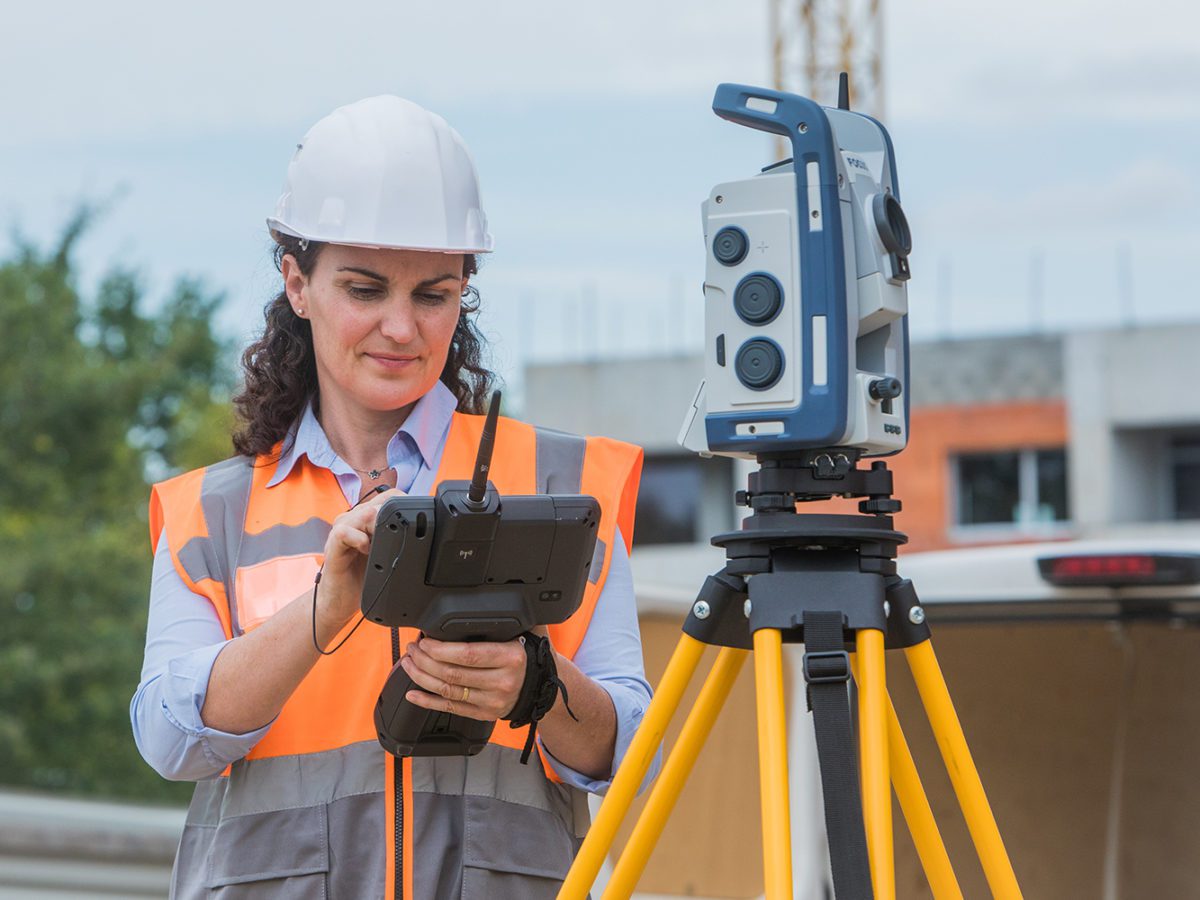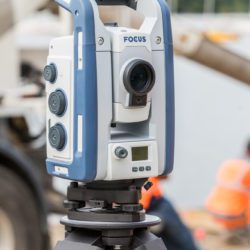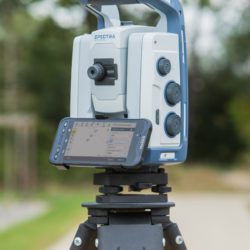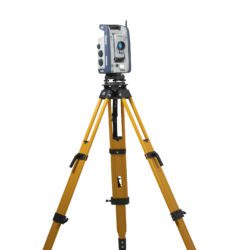This month, we will be taking a closer look at this impressive piece of kit – the Spectra Geospatial Focus 50.
The Spectra Geospatial Focus 50 robotic total station, launched in November last year as the replacement for the Focus 35, has been described as “simply more powerful”. With a modern, sleek and streamlined design, it’s not only easy-to-use, but it’s also tough and affordable.
The Focus 50 features the smoothness of MagDrive™, the stability of SurePoint™ the productivity of Autolock™ and is compatible with the latest Spectra Geospatial Origin software.
MagDrive™
The total station horizontal and vertical angle movements are controlled electromagnetically through patented MagDrive technology. This drive system moves silently while it precisely and reliably turns-to, and repeats angle measurements. Manual aiming is intuitive with this MagDrive system, including endless fine adjustment.
SurePoint™
No matter how diligent you are about tripod quality, your setup, and what surface you set up on, sometimes the tripod moves a little while you are working — SurePoint technology eliminates the angular measurement errors associated with this, in real time.
The FOCUS 50 total station uses the compensator information to constantly correct for any pointing error and trunnion axis error. With SurePoint, your horizontal and vertical angles will always be correct.
Autolock™
Move around your jobsite effortlessly while Autolock technology automatically tracks and locks onto prisms. This reduces errors related to manual aiming, and also reduces down time by not having to re-point the instrument for every observation. Additionally, Autolock is compatible with most passive prisms, so you don‘t need to buy new accessories to take advantage of this capability.
Focus 50 Models
This is a new range of robotic total stations for construction and surveying professionals and is available in three models – Autolock, Short-Range Robotic and Long-Range Robotic – with your choice of angular accuracy (1”, 2”, 3” or 5”).
The Autolock model uses a cabled connection to communicate with data collectors – perfect for someone who prefers to always be behind the instrument (e.g. if you’re working in a two man team).
The Short Range Robotic Model uses Class 1 Bluetooth to communicate with data collectors – a great solution for someone who wants to work robotically on smaller sites and those users looking for a cost effective solution. Typical working ranges of up to 350m.
The Long Range Robotic Model uses 2.4GHz radio to communicate with data collectors – ideal if you’re looking for the maximum robotic range and reliability (this model also includes short-range Bluetooth).
Versatile
The Spectra Geospatial Focus 50 total station has been designed to be easy to learn and to pair perfectly with the suite of Spectra Geospatial Field Software options, including Spectra Geospatial Origin and Trimble Access.
Spectra Geospatial Origin software offers an extensive range of features, including one-tap easy-to-use feature coding, powerful COGO computing and map-centric workflows for measuring and stakeout. Trimble Access is well know in the UK survey market and is just as productive as Origin.
This incredibly versatile instrument can be used with the Ranger 5, the Ranger 7 (more on these another time), or simply using a tablet.
In a Nutshell
- Quick and precise measurements
- Focus 50 and Origin software are designed to be easy to learn
- Silent MagDrive technology which reduces service requirements and costs
- Available in three models – Autolock, Short Range Robotic and Long Range Robotic
- Available in 1”, 2”, 3” and 5” angle accuracies, and uniquely can be upgraded at any time
- Tracklight on all models
- PIN code security feature
As we’ve already said, it’s easy to use, affordable and tough. But it’s so much more, consistently delivering high performance and versatility to tackle a variety of challenging and everyday surveying tasks.
For more information about the Spectra Geospatial Focus 50, why not get in touch?



